L ES
P ARISIENNES
How the Women of Paris Lived, Loved,
and Died Under Nazi Occupation
ANNE SEBBA
St. Martins Press  New York
New York
The author and publisher have provided this e-book to you for your personal use only. You may not make this e-book publicly available in any way. Copyright infringement is against the law. If you believe the copy of this e-book you are reading infringes on the authors copyright, please notify the publisher at: http://us.macmillanusa.com/piracy.
For Thomas, Isabella, Sophia and Charlotte
The last of the human freedoms to choose ones attitude in any given set of circumstances, to choose ones own way. And there were always choices to make. Every day, every hour, offered the opportunity to make a decision, a decision which determined whether you would or would not submit to those powers which threatened to rob you of your very self, your inner freedom
Viktor Frankl, Mans Search for Meaning
INGRID BERGMAN/ILSA: Well, Rick, well always have Paris. Do you remember Paris?
HUMPHREY BOGART/RICK: I remember every detail. You wore blue; the Germans wore grey.
Casablanca
One of the peculiarities of the present war is the exclusively dangerously feminine role it imposes on women. Is it because of the total occupation of our territory, the omnipresence of an alien and virile multitude, that women are assuming the externals of gamines and the manners of pupils? I incriminate none of her ulterior motives, well knowing that she never exposes the best of herself. But the scarcity of her hair, the indiscretion of her curls, the inadequately long skirt open to both the wind and the casual glance, all these are errors in which French charm has committed too many provocations.
Colette, Paris from My Window
Dfiner Arlette? Elle est jusquau bout des doigts une Parisienne. Elle en a le charme, lil coquin, le velout dans les manires en y ajoutant une nonchalance hrite probablement dune aeule, une de ces belles femmes quaimait peindre Winterhalter.
Pierre Combescot, Preface to Une Vie pas comme une autre

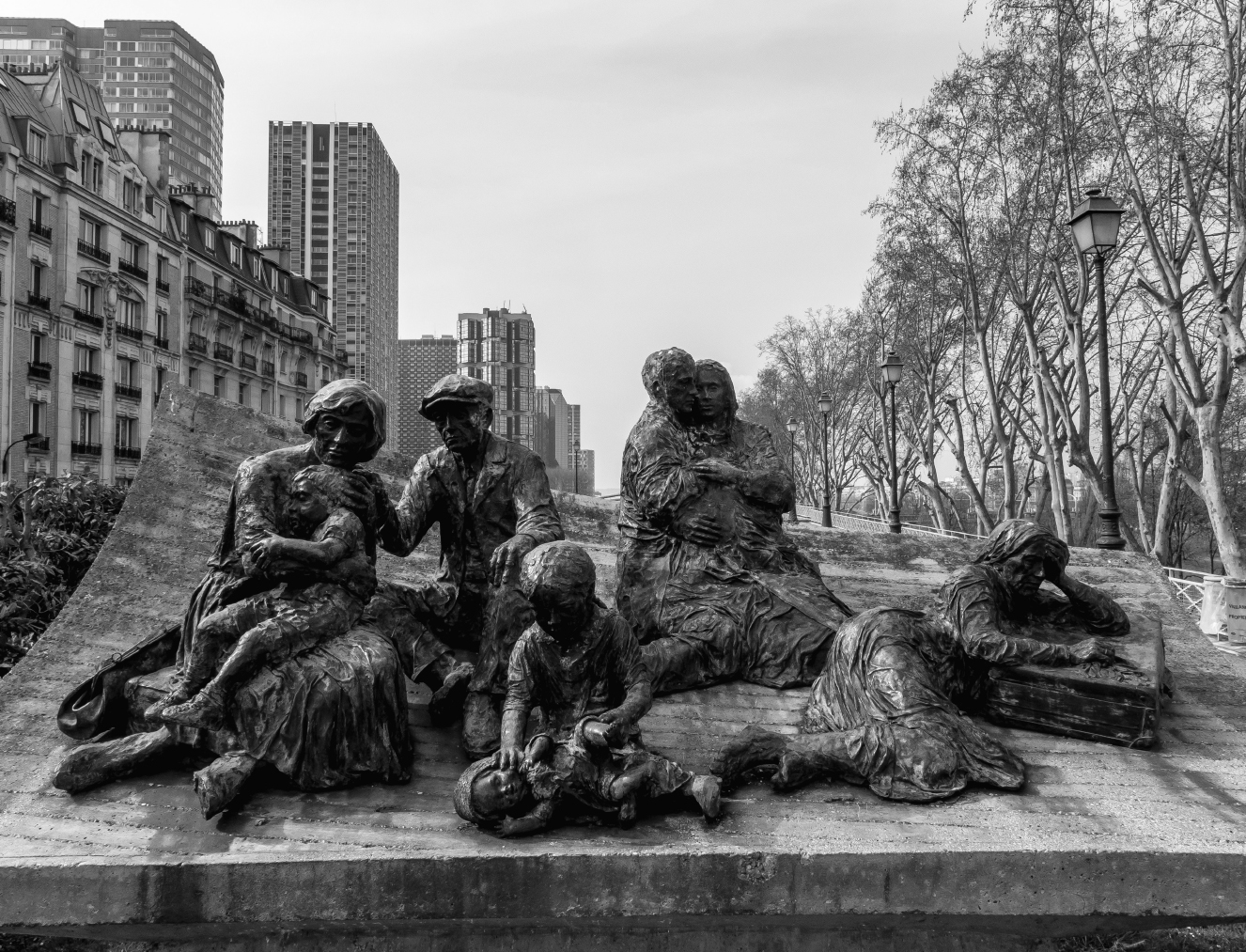
Paris, mid-July 2015, and the city is swelteringly hot. By 19 July, thunder is in the air. I am sitting on a temporary stage, waiting for the rain, enraptured by an unremarkable woman in her late eighties telling a most remarkable story. Annette Krajcer is one of the few surviving victims of the most notorious round-up in French twentieth-century history. In July 1942, when she was twelve, she and her mother and sister were arrested by French police and taken in buses to a Paris sports stadium, the Vlodrome dHiver, along with 13,000 others, including more than 4,000 children. After three days of being held in disgusting conditions with almost nothing to eat or drink and with totally inadequate sanitary facilities, they were crammed into cattle cars and taken to another camp, Pithiviers, fifty miles south of the capital. This was just a little better as they slept on straw-filled bunks and were given some meagre rations. But two weeks later, the girls mother was taken away and they never saw her again. Abandoned, they were now taken back to Paris, to a holding camp in the suburb of Drancy. Most of the children who returned with them on this occasion did not survive much longer as they were shipped to Auschwitz and gassed. But Annette and her sister Leah were, miraculously, saved. A cousin who worked as a secretary in the camp saw their names on a list and managed to organize their liberation. They spent the next three years in hiding, but at the end of the war they were reunited with their father, who had been a prisoner of war working on a German farm in the Ardennes.
Today Annette is recounting those events to an audience that is mostly elderly but includes Parisian dignitaries and journalists. Her story is especially distressing because the mention of lists is a reminder of how the Jewish community was itself forced to compile names and addresses of its own members. She cannot, she says, pass a day without thinking of the other 4,000 children who did not have such useful cousins.
Also telling a story that oppressive morning is Sverine Darcque, a thirty-three-year-old teacher who owes her existence to Pierrette Pauchard, a farmers widow from Burgundy recently declared one of the Righteous Among Nations (the official term used by the state of Israel to describe non-Jews who risked their lives during the Holocaust to save Jews from extermination by the Nazis). Pierrette was among those French men and women who put their own lives in danger to help Jews survive, and Sverines dramatic story shows how courageously many ordinary French people behaved. Pierrette saved at least five Jewish children who grew up alongside her own, one of whom was an abandoned eighteen-month-old baby named Colette Morgenbesser. Sverine is Colettes granddaughter but thinks of herself as a descendant of Pierrette too.
The stadium no longer exists, but this ceremony is now held annually on a nearby site in the shadow of the Eiffel Tower following President Jacques Chiracs groundbreaking 1995 speech when he officially recognized French culpability for the 1942 round-up. The Vichy government, then headed by Pierre Laval, agreed to help the Nazi occupiers by delivering up thousands of foreign Jews, and their children born in France who were therefore French. The number of those who lived through the events being commemorated diminishes each year, but some of their children now attend to honour their parents memory. In less than an hour, the two women making formal addresses have revealed some of the myriad narratives which make up the complex patchwork of experiences in France during les Annes Noires, the Dark Years. In different ways they have both shown that the past is not yet the past in France. Above all they demonstrate how harshly the burden of decision so often fell on women, usually mothers, and how murky was the range of choices.
Echoes of the past continually resonate in modern-day France, because what happened here during the 1940s has left scars of such depth that many have not yet healed. There is still a fear among some that touching the scars may reopen them. Nearly eighty years after the conflict ended, I am frequently warned as I plan interviews and research for this book to bear in mind that what to me is history is still the highly sensitive present for many; some people may not talk to me. Nowhere was this more evident than in todays Vichy, the spa town which became government headquarters after the fall of France in 1940. The hotel which housed Marshal Ptain and many other government officials for four years now serves as the towns Tourist Information Office, yet the young staff working there when I visited were unable to confirm any details of life in the town in the 1940s, a period about which they apparently knew nothing. My request to see the plaque, located inside Vichys opera house, which declares that it was there that on 10 July 1940 the National Assembly voted full governing powers to Field Marshal Philippe Ptain, thus ending Frances Third Republic, was turned down. Bizarrely, the plaque states that eighty

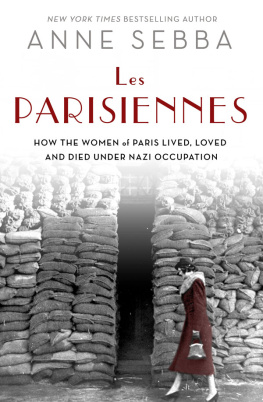
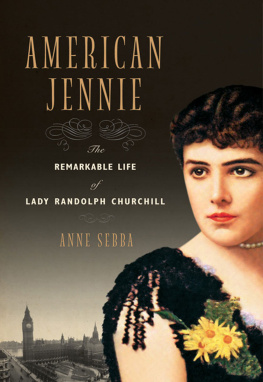

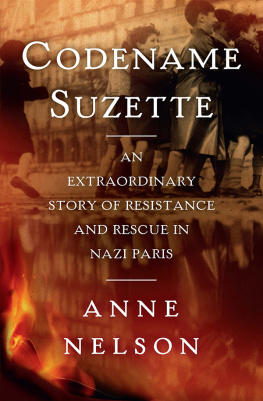
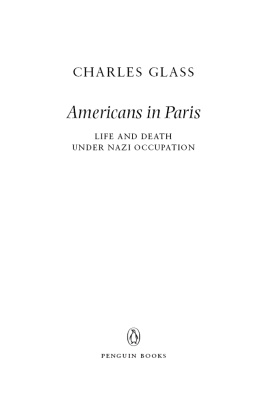
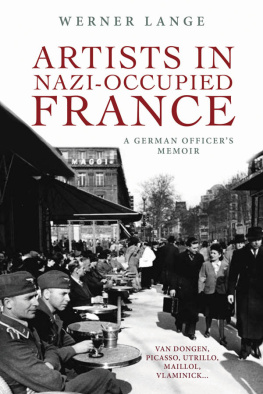


 New York
New York
